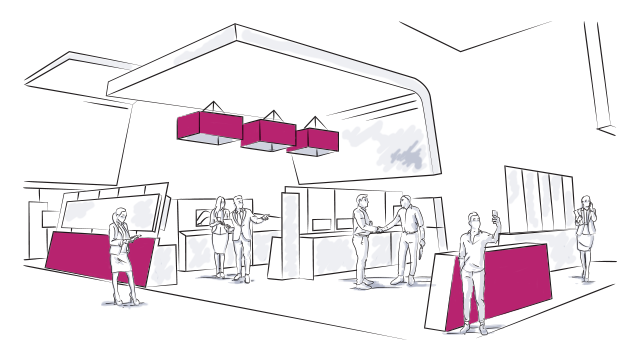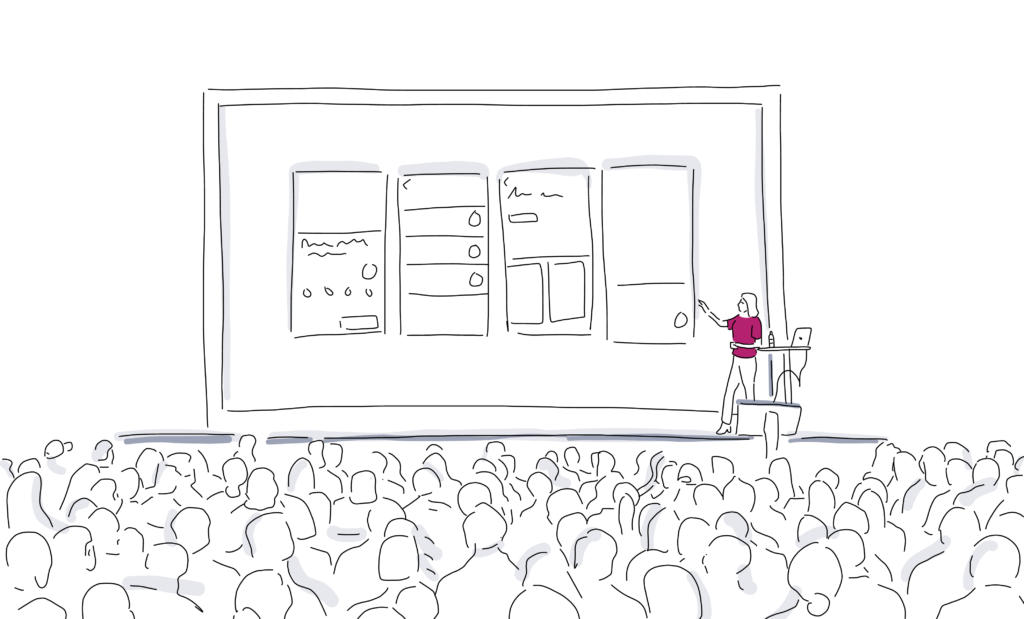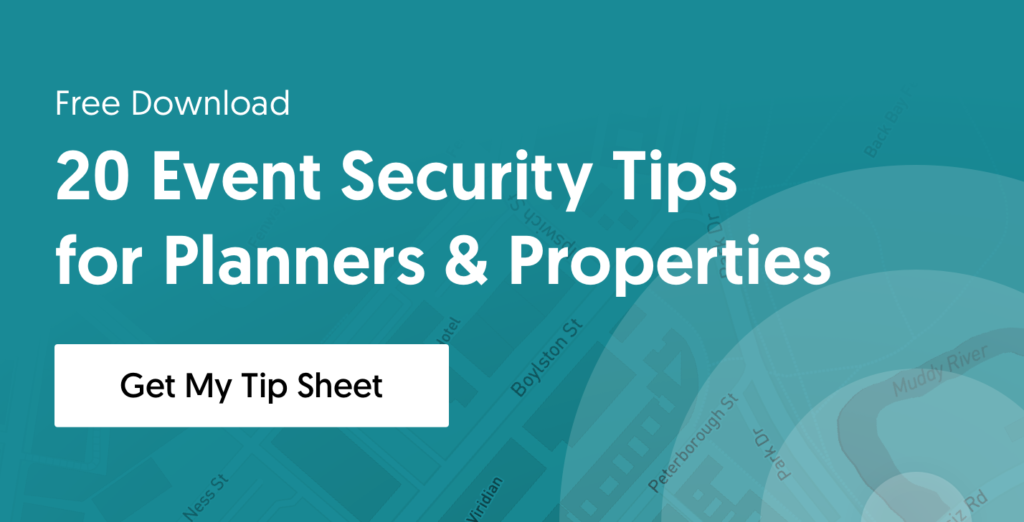
Your Venue Security Plan: Why It Matters Now More Than Ever
Long gone are the days when event venue security used to be tacked as an addendum in event planning, with event planners the only corporate staff sweating about it. But even then, event organizers were concerned more about protecting the venue entrance, the assets, and–of course–the occasional unruly guest.
[Tweet “Venue threats can and do come from anywhere. We all need a security plan like this in place.”]

A New Horizon of Threats on Your Venue Security Plan
Today, venue threats have shifted from petty crimes and rambunctious conduct to something entirely different. Threats can come from anywhere “ terrorist and militant groups, radicalized individuals, random gun, and knife violence, etc.
And as recent security events have shown us, this is not unique to any one place or country.
There were the Paris attacks where gunmen attacked revelers during an Eagles of Death Metal concert, leaving 89 people dead. The Orlando nightclub shooting where a lone gunman killed 50 people and left dozens more injured. The shooting rampage by a teen in Munich that left 10 people dead. Also, the recent attacks at an Ariana Grande concert in Manchester which claimed 22 lives.
Knife attacks across Europe and the United States have become the norm, not to mention the dozens of other horrific attempts that we hear about on the news every other week.
Yes, the world has changed. And everyone, not just events professionals, now realizes venue security is critical to a successful event regardless of its nature. In a world of heightened security concerns, organizers need to ensure safety is the last thing on their attendees’ minds.
From barely an afterthought, venue security has grown into a best practice that impacts an event’s success.
Vet Your Venue Selection
The silver lining in the wake of these tragic events is that everyone has come on board “ hotels and other meeting venues, event organizers, security firms, and more — to keep guests safer.
Today, every event planner wants the assurance that their attendees will be safe and sound. And the best planners know all too well that providing the best security involves participating in all phases of the event, and not just event days.
This entails taking what FEMA calls an “all-hazards approach”, which addresses all aspects of natural, technological, or human-caused incidents while keeping the amount of disruption to a minimum.
Proper planning and risk assessment are very much part of a venue security plan, whether you’re planning a large-scale event or smaller meeting. This could cause in-depth site visits by the events planner, possibly numerous times if it’s a venue they are not conversant with.
You must identify areas (or loopholes) that could compromise the event’s success. Then use this assessment to cover all your bases. The last thing you want is to put in place half-hearted security measures only to be caught flat-footed.

How Venues Can Support Security and Safety
Threats to venue security can come in different forms — which means venues need to have an all-encompassing risk mitigation plan in place.
This plan should audit three main areas of security:
Physical
The first thing that comes to mind when most people think of event security is physical safety.
Physical security involves taking care of the physical aspects of security, as redundant as that may sound “ conducting gate security checks using screening devices, posting security officers at the entrance, securing the facilities themselves against all forms of threats. For example, the risk of fire by defining entry and exit points.
Information
It is beneficial to factor in the threat of a potential terrorist or an active shooter, but not at the expense of information security.
The technology era we live in today has morphed the threat, and cybersecurity is a growing concern.
Cybercriminals can compromise anything connected to the Internet and use it as an attack that can affect physical safety. Hackers could, for instance, illegally gain access to personal or financial records of an attendee “ or even breach the hotel or venue systems “ and override electronic gate or door-locking.
Personnel
Personnel security is a key component of risk management. Entities like employees could be the Achilles heel to venue security. In fact, employees have been cited as the biggest vulnerability when it comes to information security.
Every single member of the workforce involved in the event, whether temporary or permanent, should undergo security awareness training. Everyone needs to make sure they understand the importance of information security. Additionally, they should receive situational awareness.
This training will put them in a position to be able to spot and report potential red flags.
Above all, the training should make it clear that security “ these days “ is everyone’s responsibility, not just security or law enforcement officers’.

A Solid Venue Security Plan Will Never Hurt You
The best way to approach venue safety is to have a solid plan in place. This plan should outline clearly and comprehensively what needs to be done, when, and by whom.
It should touch on all the three aforementioned areas of security, and all stakeholders need to understand this plan and be ready to commit to it. You cannot be entirely foolproof; sometimes, mistakes do happen. It is good to acknowledge this fact and have a fallback plan in place in case of a security breach.
Of course, planning and hosting an event requires a budget. Today, event planners look to get creative and do more with much less. Considering that event budgets are shrinking, you need to establish a fixed venue security budget to work with.

Make a point of setting a clear budget for every event, covering everyone and everything, from the security personnel and equipment to training the event staff. And keep track of your expenses as you go.
The best event planners know that a blanket approach never works when it comes to event security. Each event is predisposed to different risks and threats. For this reason, it is never a bad idea to look at each event using a different lens.
Download our quick checklist of 20 event security tips and tactics to help you prepare like a pro! And don’t forget to check out our Event Venue Software to quickly diagram a secure event, and to communicate clearly with your entire event staff as things change.

Still have some questions about venue security?
At the simplest level, security makes it easier to ensure that only your expected attendees are at the event. Security can also bring peace of mind to your attendees, and most importantly, can help prevent tragedies from happening.
Loosely speaking, one security staffer per 100 attendees is a good ratio. However, more important than the number of guards you have is that every staffer is trained and informed about what to do in case of emergency.

